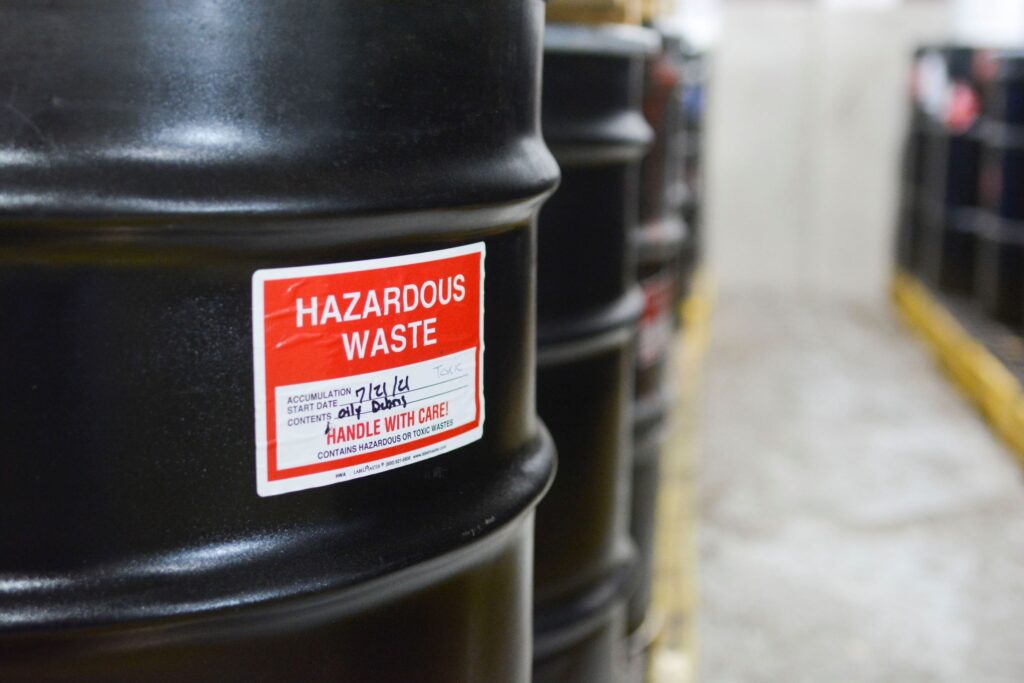Hazardous waste is difficult to dispose of by design. These products, often dangerous to people and the environment, are regulated to keep us safe. Part of that regulation means most of these products, from big business hazardous waste to hazardous household products, cannot be thrown in the trash or down the drain, instead having to go to special facilities for disposal. Today we’re going to look at why and understand some of the environmental effects of improper hazardous waste disposal.
Understanding the Rules and Regulations Behind Hazardous Waste
It’s the US Environmental Protection Agency (EPA) that lays out federal regulations for hazardous waste, and the state-level agencies – for MA, the Massachusetts Department of Environmental Protection (MassDEP) – that enforce those rules. In simple terms, these focus on the entire lifecycle (cradle to grave) of hazardous waste set out by the EPA’s Resource Conservation and Recovery Act, which manages how businesses (and communities) need to manage their hazardous waste. Learn more about the differences between those two in our blog, Residential Hazardous Waste Vs. Commercial Hazardous Waste.
Types of Improper Waste Disposal (and Impacts)
One of the EPA’s (and on a local level, MassDEP) goals is to reduce the environmental impact – especially those that come from waste products. While much of that may only need to be thrown into a landfill or flushed into a treatment plant, hazardous waste tends to contain products that are dangerous to humans, flora, and fauna. What happens to those products when they aren’t disposed of properly? Let’s look:
Hazardous Waste in the Trash
Make sure to read the label on that product before you try to throw it away because it might cause problems down the line. While some can be immediately hazardous once they hit the compactor of a garbage truck due to explosions, they can also start fires in the landfill or leak hazardous chemicals or heavy metals into the groundwater at the dump.
Hazardous Waste Down the Drain
While certain products shouldn’t go down the drain due to the hazards of clogging, the vast majority pose a risk to the environment itself. From insecticides and herbicides to heavy metals, these products can affect water treatment plants or even the environment itself, depending on what drains you pour it down (such as septic tanks or storm drains). Learn more in our Down the Drain blog.
Illegally Dumping Hazardous Waste
Lastly, there’s illegal dumping – a crime that can run the gambit from dumping your TV in the forest (which includes a hefty fine when caught) to the creation of Superfund sites where commercial dumping has resulted in making land unusable and massive plant and animal die-offs. Those products that are not discovered will eventually break down and pollute the local environment.
Hazardous waste needs to be disposed of properly – and here at NEDT, we make it easy as possible. For our commercial hazardous waste services, contact our commercial services to learn more about transportation, remediation, and disposal. For residential and VSQG businesses, you can stop by one of our NEDT Household Hazardous Waste Collection Centers or contact us if you have questions or want to use our pick-up service.



Leave a Reply